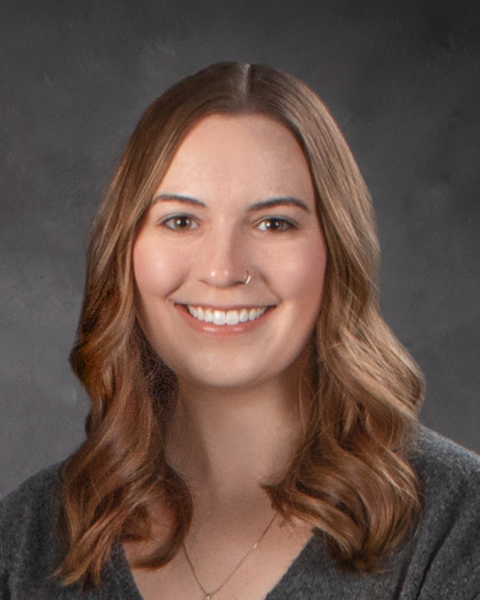Women in the Woods: A Needs Assessment Approach
Women-owned and managed forests provide diverse public values, including wildlife habitat, forest products, water quality, climate mitigation, and recreation. However, many women may lack the skills, knowledge, and confidence to make informed stewardship decisions and effectively manage their forestland. Women in the Woods, a project of the University of New Hampshire Cooperative Extension (UNHCE), NH Timberland Owners Association (NHTOA), and the Society for the Protection of New Hampshire Forests (SPNHF), seeks to support women landowners, managers, communities, and natural resource professionals across New Hampshire. Women in the Woods programming is open to all participants, but is designed for marginalized genders, including women, women-identifying individuals, and non-binary and gender non-conforming people who are comfortable in a space that centers the learning experiences of women.
The goal is to provide a historically underserved and increasingly important audience in forestry outreach and technical assistance with increased capacity to protect, manage, and enhance New Hampshire’s valuable forest resources.
Nationally, an increasing trend of women forestland owners becoming primary decision-makers for their land has been observed.1 Despite the increasing role of women decision-makers, little is understood about their management behaviors and attitudes.2,3 In general, women are believed to have different attitudes and motivations when it comes to forest management than men.3,4,5 Some research has revealed that women face more land management challenges than men, and current systems do not recognize the differences between men and women’s decision-making.6 Additionally, traditional management activities may not resonate with women forestland owners and therefore result in less participation in forestland management practices.2,6
Few studies exist in the United States, particularly in the Northeast, that examine the role of women in forestland management. Despite some research on this topic, there is still much to be discovered about why women acquire land, their beliefs, limitations, barriers, goals, and how these factors differ from their male peers.
In New Hampshire, non-industrial private landowners - including women landowners - oversee approximately 73% of the State’s forests. The health of New Hampshire’s forestland is defined by the ability of private landowners to make informed management decisions on their property.
No prior research has been identified in New Hampshire to assess the needs and experiences of women who participate in forestland management. In summer 2022, UNH Extension anonymously surveyed self-identified women and gender nonconforming forestland owners and managers and recently completed a report of the key findings.
Key Findings
Data in the report includes 415 responses from women located in 154 towns in all 10 New Hampshire Counties.
Demographics
- 62% are married.
- 53% are more than 50 years old.
- 51% are employed full-time.
- 50% have owned or managed the land for 10 years or less.
Forestland Characteristics & Management
- 73% believe wildlife is a very important reason for owning or managing land.
- 68% who are not aware of resources available to help them get started with management passively manage their land.
- 47% own or manage 25 acres or less.
- 45% do not have a forest stewardship management plan.
Education & Learning
- 66% do not have a gender preference for an instructor, while 22% prefer a woman instructor.
- 62% are very interested in attending a workshop to learn about wildlife habitat.
- 61% find one-on-one visits with natural resource professionals to be a very effective method when learning new information or skills.
- 50% are very likely or somewhat likely to attend women-only workshops.
- 35% have experienced differential treatment based on gender in an educational setting.
I definitely frequently feel mistreated and mistrusted by foresters or especially loggers because I am a woman. The assumption is that I do not know anything about the land I’m managing or about the forestry practices that are being conducted and discussed.
Conclusions
Based on our results, there is a need to provide education programs targeted to women forestland owners and managers. Women-focused programming should be designed with a comfortable environment in mind, paying close attention to convenient times of day, learning styles, and topics of interest. The information collected from this survey will inform strategies for women-focused program development, workshop topics, resource creation, and technical assistance.
I make the decisions but often do not have the knowledge or experience needed.
Funding for this program is provided by a Landscape Scale Restoration Grant, U.S. Forest Service.
References
1 Butler, B. J., Hewes, J. H., Dickinson, B. J., Andrejczyk, K., Butler, S. M., & Markowski-Lindsay, M. (2016). Family Forest Ownerships of the United States, 2013: Findings from the USDA Forest Service’s National Woodland Owner Survey. Journal of Forestry, 114(6), 638–647. https://doi.org/10.5849/jof.15-099
2 Butler, S. M., Huff, E. S., Snyder, S. A., Butler, B. J., & Tyrrell, M. (2017). The Role of Gender in Management Behaviors on Family Forest Lands in the United States. Journal of Forestry. https://doi.org/10.5849/jof.2016-076R2
3 Warren, S. T. (2003). One Step Further: Women’s Access to and Control Over Farm and Forest Resources in the U.S. South. 19, 21.
4 Markowski-Lindsay, M., Catanzaro, P., Zimmerer, R., Kittredge, D., Markowitz, E., & Chapman, D. A. (2020). Northeastern Family Forest Owner Gender Differences in Land-Based Estate Planning and the Role of Self-Efficacy. Journal of Forestry, 118(1), 59–69. https://doi.org/10.1093/jofore/fvz058
5 Pröbstl-Haider, U., Mostegl, N. M., & Haider, W. (2020). Small-scale private forest ownership: Understanding female and male forest owners’ climate change adaptation behaviour. Forest Policy and Economics, 112, 102111. https://doi.org/10.1016/j.forpol.2020.102111
6 Redmore, L. E., & Tynon, J. F. (2011). Women Owning Woodlands: Understanding Women’s Roles in Forest Ownership and Management. Journal of Forestry, 109 (5): 255–259.
Are you interested in learning more about Women in the Woods and upcoming events?
Sign up for our newsletter to receive updates.

